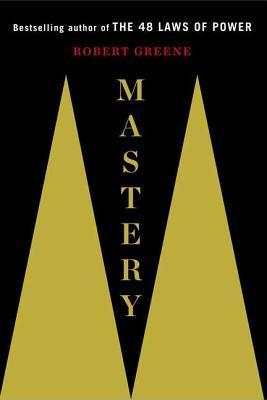More on this book
Community
Kindle Notes & Highlights
you relied upon mentors and those above you to supply you with the necessary standards of judgment for your field.
Hurrying to the end or warming up old ideas will ensure a mediocre result.
the emphasis shifts from the joy of the creative process to the love of attention and to our ever-inflating ego.
we come to think that our brilliance has naturally drawn our success and attention, as if it were indeed fated.
you must not get too hung up on any single frame of mind.
Flexibility is not an easy or natural quality to develop.
the greatest impediment to creativity is your impatience, the almost inevitable desire to hurry up the process, express something, and make a splash.
own. You must keep your mind completely open—no
mechanical intelligence is not a degraded form of thinking, as compared to abstract reasoning.
whatever you are creating or designing, you must test and use it yourself.
You give yourself time to dream and wander, to start out in a loose and unfocused manner.
Second, it is best to have wide knowledge of your field and other fields,
You must cultivate profound dissatisfaction with your work and the need to constantly improve your ideas,
you must come to embrace slowness as a virtue in itself.
The process goes as follows: You begin by looking inward. You have something you want to express
that is unique to yourself and related to your inclinations.
in order to learn a subject or skill, particularly one that is complex, we must immerse ourselves in many details, techniques, and procedures that are standard for solving problems.
This technical lock afflicts people in all fields as they lose a sense of the overall purpose of their work,
what constitutes true creativity is the openness and adaptability of our spirit.
Creativity and adaptability are inseparable.
Our culture depends in many ways on the creation of standards and conventions that we all must adhere to.
Your task as a creative thinker is to actively explore the unconscious and contradictory parts of your personality, and to examine similar contradictions and tensions in the world at large.
to create a meaningful work of art or to make a discovery or invention requires
great discipline, self-control, and emotional stability.
we humans have come to recognize only one form of thinking and intelligence—rationality.
This form of thinking is extremely effective and has brought us great powers.
We prefer things that can be reduced to a formula and described in precise words.
high-level intuition, the ultimate sign of mastery, involves a process that is qualitatively different from rationality,
but is even more accurate and perceptive. It accesses deeper parts of reality.
dynamic, the living force that inevitably operates in anything we study or do.
Masters thus have a sense of how everything interacts organically, and they can intuit patterns or solutions in an instant.
rather comes in flashes and insights as the brain makes sudden connections between disparate forms of knowledge,
The reasoning of Masters is guided by intuition; their intuition springs from intense rational focus.
The time that leads to mastery is dependent on the intensity of our focus.
The key, then, to attaining this higher level of intelligence is to make our years of study qualitatively rich.
We don’t simply absorb information—we internalize it and make it our own by finding some way to put th...
This highlight has been truncated due to consecutive passage length restrictions.
If we experience any failures or setbacks, we do not quickly forget them because they offend our self-esteem.
we reflect on them deeply, trying to figure out what went wrong and discern whether there are any patterns to our mistakes.
you must also maintain a sense of destiny, and feel continuously connected to it.
You are unique, and there is a purpose to your uniqueness.
No moment is wasted if you pay attention and learn the lessons contained in every experience.
Intuition, primitive or high level, is essentially driven by memory.
high-level intuition, like any skill, requires practice and experience.
intuitive form of intelligence was developed to help us process complex layers of information and gain a sense of the whole.
To follow any career path is difficult, and requires the cultivation of much patience and discipline.
We must learn how to quiet the anxiety we feel whenever we are
confronted with anything that seems complex or chaotic.
In moments of perceived crisis, we must develop the habit of maintaining our cool and never overreacting.
To go along with this self-control, we must do whatever we can to cultivate a greater memory capacity—one
We embrace the natural complexity of life, making the brain expand to the dimensions of reality instead of shrinking it to the narrowest of specializations.


